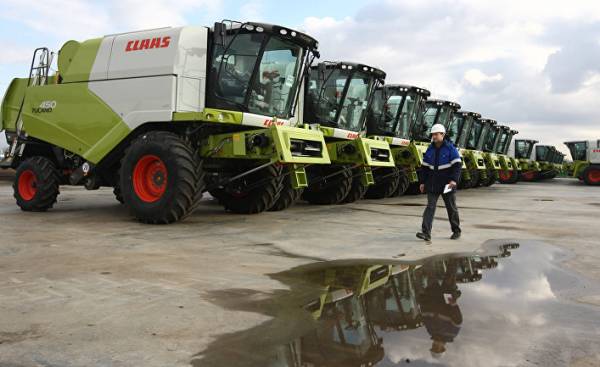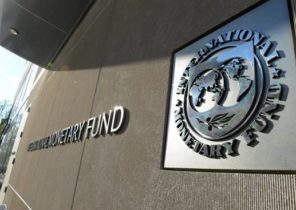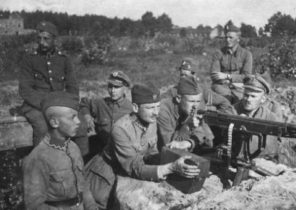
In the three years since the introduction of the EU sanctions, Czech exports to Russia dropped by more than half. Despite the fact that the latest data from the Czech statistical Institute indicate export growth early in the year by almost 25%, figures remain approximately the same as during the economic crisis of 2008-2010. Whether countries of the Commonwealth of Independent States is a real alternative and the possibility of compensation for the Russian market? Viable if the newly formed Eurasian economic Union? And what benefits it promises to Czech exporters?
About the opportunities, conditions and prospects of doing business in this region, we spoke with Executive Director of the Chamber for CIS countries františek Masopust.
— MM: it Seems that anti-Russian sanctions of the eternal. They began in 2014, and in December of 2016 has been extended to mid-2017. There are different opinions on how sanctions affect the export and import of Czech companies. But the numbers don’t lie, and according to the Czech statistical Institute, Czech exports to Russia is steadily declining.
František Masopust: I’m watching the situation since January 2003, when I started working on the post of Executive Director of the Chamber for CIS countries. The figures cited by the Czech statistical Institute, speak clearly. I want to give you one comparison. In the period after the first financial crisis of 2008-2009 when the ruble fell and some Czech exporters have left the Russian market, there was just an incredible rise, and then the exports of Czech companies to Russia have risen sharply. In 2009, Czech companies exported nearly 1.9 million euros, in 2012 — 4.7 million euros. Was exported, primarily engineering products, which was the flagship of exports to Russia.
Now, almost three years after the introduction of European sanctions, we are registering approximately the same numbers that were in crisis. That is a Czech exports to Russia fell by more than 50%. In 2016, it had reached 2.8 million euros.
I would like to consider the situation after the introduction of anti-Russian sanctions in the broader context of development and functioning of the Russian economy. Around 2002 approved the strategy, according to which the Russian economy needs to stabilize, and its technological level will increase. Authorities have stated that it is necessary to sell not only raw materials but also products with sufficient added value. The country’s economy cannot be built on the export of oil and gas — need to create a joint venture to purchase equipment and entire technological systems to create its own production and to improve economic performance. Over time, however, it turned out that the reality differs from the strategies and theories on paper. Financial resources, which in the period of the Soviet Union and then Russia was sufficient through the sale of oil and gas, invested in willing, often overly expensive products, including engineering.
In the summer of 2014, sanctions were imposed, followed by the collapse of the ruble, and the Russians have no money left to buy major technological systems. Decreased and revenues from the sale of cheap oil. Russian banks had no capital and even access to it. World banks imposed a ban on cooperation with the Russians, and the Russian market faced a shortage of currency. Decreased purchasing power, and all this, of course, was reflected in the General state of the Russian economy. Another problem, primarily for the engineering industry, were dual-use goods.
What is the situation now? According to official data, the share of Czech exports to Russia in total volume reaches only four percent. I think it’s a very small number.
— I would say that in terms of exports to Russia in 2014 and 2015 was still normal. Approaching the end of the Czech-Russian projects and contracts. The Russians paid loans, and they had a desire to fulfill their obligations. It can confirm and Export guarantee and insurance company (EGAP). Due to the fact that the sanctions lasted, new contracts and the deals were not implemented. There was a significant decline, which, from my point of view, is fatal.
You are right: according to official figures, Czech exports to Russia reached “only four percent.” But if you translate them into specific jobs in small and medium-sized companies that were subcontractors and were dependent on exports to Russia, the figure will be much greater. The German company, which exports to Russia, of course, would prefer not a Czech supplier, and German. Also worth noting is that four percent is, above all, direct exports. In fact, if we compare the figures with the Russian and Czech side, the numbers are different. The Russians have always lead the total number of products that were produced in the Czech Republic and imported directly to Russia or transit through other countries.
With regard to the renewal of EU sanctions against the Russian Federation, I’m extremely skeptical. The original deadline for their completion was called mid 2017, but this is unrealistic. In this agree with me and others who believe that sanctions can last up to 2020.
And yet I see reasons for optimism. According to the latest data of the Czech statistical Institute in the beginning of this year, Czech exports to Russia rising again. However, while only 25%.
— What part of the Czech industry suffers the most? Did sanctions some Czech companies to fight for survival? Is there any chance for those who failed to stay in the Russian market, to go back there? How to solve this problem of Western and American companies?
— Even after the outbreak of war in Russia were imported Czech engineering products, more machines, and then the whole line. Until now, this export was not stopped. Our machines are highly appreciated, especially in such industrial regions as the Urals, Sverdlovsk oblast, Ekaterinburg and other regions, for example, in Tatarstan and Bashkortostan. There are Czech machines have a good reputation, and even obsolete, the samples still work fine. Unfortunately, since 2012, the export of our machinery products to these regions declined rapidly. With 100 per cent we have sunk to 40. The remaining 60% was taken by the Germans, the French, the Italians, the Japanese and the Swiss. Working very well and South Korea. These countries very quickly we replaced. They managed to stay in Russia due to the reasonable prices, and their terms were for the Russians more acceptable. Another point is lobbying government officials to support their producers. I remember the initial period, when the sanctions just announced. The Chairman of the government of the Federal States immediately went to Russia, met with the President and strongly lobbied for Siemens.
— What is the current state of the Russian market? How did almost three years of EU sanctions on the Russian economy? Is there, in Your opinion, from the Czech engineers some chances and opportunities? We often hear from business owners that, well, now they do not export, but still think the Russian market is important for yourself.
— The Russian market is still shaky. He’s not well. However (and this applies to all the former Soviet republics, including Kazakhstan, which all say that he is not rich) wherever you come from, you hear two words — investment and localization. With the investment, everything is clear, and localization concerns the transfer of production. In Russia and the CIS are created zones for foreign investment and business in the form of so-called economic zones. The Russians call their free economic zones. Actually we are talking about undeveloped location, or reconstructed after some of the company (often impoverished) object. There are given the opportunity to do business on very favorable terms. The most famous and attractive benefits include tax breaks (five years, you pay no income tax). In most of these areas already have the infrastructure, or the government guarantees that it will build for free. In addition to Russia, the system operates economic zones in Belarus, Kazakhstan, and Azerbaijan. In an example I can give the new zone in the sea port of Baku. There is created a free economic zone, where it is possible to take advantage of newly constructed housing or build it yourself. This is a wonderful project that is created in a staging point on the silk road. The proximity of the sea ensures quick dispatch, loading and unloading of cargo from the vessel. The second advantage — the status of a local manufacturer. If you want to import or export a product, it is in the economic zone, the duty is much lower than usual or even completely absent.
In December 2016 was 25 years since then, as some post-Soviet States came together and formed the Commonwealth of Independent States (CIS). If to speak about cooperation of the Czech Republic and the CIS, successfully worked the Czech company, and as far as the former Soviet republics to gain a foothold on the Czech market? This area has emerged as a new economic Alliance — Eurasian economic Union (EEU), which, according to some economists, replace the CIS. How to understand this?
— Of course, no question of replacement is not. The CIS and the EU — are quite different enterprises, with different functions and missions. The aim of the CIS — coordination in the political, economic and military spheres. The EEC is a purely economic Union.
As for CIS, I am convinced that the main and specific result is its independent functioning and economic development for 25 years. I remember very well in 1992 when began the history of individual States. For them it was a very difficult period, especially from a psychological point of view. It was hard for them to find their own identity and gradually to revive its economy. Czech firms have been successful in exporting to the territory of the CIS countries in the field of engineering, energy, transportation, chemical industry, building infrastructure. We also successfully supply technological systems for agriculture. It in the first place, such countries as Russia, Belarus and Kazakhstan. If we talk about the imports from the CIS, dominate energy supplies, artificial fertilizers, and chemicals processing industry from Russia, Belarus, Kazakhstan, Azerbaijan and other countries, such as Tajikistan.
In 25 years of existence of the CIS the conditions for mutual trade has changed fundamentally, and some countries realized that they need to go in the direction of deeper cooperation and integration. Therefore, in the spring of 2014 was established the Eurasian economic Union (EEU), which United four States: Belarus, Kazakhstan, Kyrgyzstan and Russia. The main principle of the EEC is not a unified economic, foreign and defense policy. The Union wants to work only on the basis of economic cooperation, which is in the duty-free movement of goods, free movement of people and capital.
— The Eurasian economic Union was established on economic principles, which are similar to the principles of the European Union: the guarantee of freedom of movement of goods, services, capital and people. Speaking of European economic prosperity, that is, whether from the EEC a chance to go down the same path? What do You think about this after almost fifty years of functioning of the Union?
— Two years after the creation of the EEC, I would have not talked about “functioning”. It is clear that two years of work, we can’t talk about the full functioning of the Union. The gradual establishment of the organs of the EEC who work primarily on the legislation and its application in practice. Now combine the customs system, customs management process, concluded the first agreements on free trade zones. The first agreement has been signed with Vietnam, and talks are underway with China, Mongolia, India and Thailand.
UES is under preparation and discussions of how best to implement the common economic decisions, and how to achieve universal agreement and benefits. For Union members it is difficult. In these States, which now, as before, a very different polity, freedom of movement was never. In technical, cultural and mental terms they are very different from the traditional countries. But their strong will for change, primarily in the economic field, is admirable. I think for our business it is a good signal. If I wanted to open in one of the countries of the EEC subsidiary, the prospects I have very bright. In the future I would be able to sell their products duty-free into these attractive markets like India, Mongolia and China.
Viable if this Eurasian project? What is its purpose and mission? How it works and what it will bring to the Czech firms? What is the relationship between the European Union and the EEC? Some experts say about the competition.
— I think this project has a chance, and well, if Czech companies participated. Duty-free movement, which is introduced within the EEC, I believe the most important element. Here is an example. The Germans know how great it is to enjoy the benefits offered by EES. When the Russian buys Russian farmer harvester, he receives from the state 50% of the cost of government subsidies. When the harvester is bought abroad, the farmer gets nothing, and the purchase is subject to quite a large duty. German businessmen did not panic and ushered in the economic area of a subsidiary Assembly machines. They chose Krasnodar region, because there the most favorable conditions for agriculture. There harvesters harvested, which means they are produced in Russia. To further gain a foothold in the market, the Germans launched a sponsorship. In local University, they conduct agricultural seminars, where present, in the first place, their products and train the future agronomists to work on German machines. Then the local mechanic, or the agriculturist will come to a local farm, or rather on the farm and asked to buy German equipment. So the circle closes. If the EEC everything will work as it is necessary, from Krasnodar German harvester can obligasi duty, to get, for example, in neighboring Kazakhstan agrarian.
As for the EU and the EAE, you can not compare them. These are two completely different institution with different goals and activities. They show each other the correct interest, and it is not about rivalry but about the opportunities and cooperation.
— How can the above initiative of the EEC to influence the European business environment, in particular the Czech industry and engineering? What European countries are the most promising for the Czech, especially the machine-building companies? What EEC country has for Czech companies the greatest potential from the point of view of export opportunities, joint ventures and other things? And what You say in this context the imports from the EEC in the Czech Republic?
It all depends on the range of products. If the company is engineering, then I definitely suggest Belarus. This country is able to comply with legislation. There is a skilled workforce. Belarusians are responsible and reliable. I would recommend to create in Belarus base, then to continue the expansion to the East. Geographically Belarus is the closest. Of course, I do not advise at once to build a factory there. It is better to supply components and produce the Assembly there, for example, machine control systems. In the first stage from the point of view of logistics of the individual components is advantageous to bring the trucks. To Belarus they will reach in 12 hours. As a springboard for Czech exports to Belarus is ideal. Definitely, I would give her the preference to Russia or Kazakhstan.
Another interesting product, which, in my opinion, we in the Czech Republic long underestimated, is the research potential of Russia and former Soviet countries. It is well known that their scientists are among the best in aerospace, defense industry and other segments. However, the cruel reality is that none of these countries have no resources to implement research projects (with the exception of especially significant for the state). So there is a huge potential in the field of practical application of projects, scientific achievements and research results. You only need to take this chance.
— How effectively the Czech state institutions (Ministry of foreign Affairs, the Agency Czech Trade and Czech Invest, Ministry of industry and others) helping projects within the EEC and the CIS, creating export opportunities.
— I definitely see progress. Will begin with the European context. After two years since the establishment of the EEC started to work as a consultative platform between the EEC and the EU. Of course, this has an effect on the position of the Czech foreign Ministry.
Chamber for CIS countries, has accumulated positive experience of cooperation with Czech diplomats and ministries. I especially would like to mention the Ministry of industry and trade, the Ministry of agriculture and Ministry of foreign Affairs of the Czech Republic. Whatever the views on economic diplomacy, lobbying by high-level government representatives in the CIS countries is necessary. There’s just other countries, other customs. And there’s power in particular is closely linked to the economy. It’s a given. If at the political level, these countries maintain good relations, there are all prerequisites to ensure that the economy was fine. When working in these countries, Czech companies just need the support and commitments from the government are perceived very positively. In this regard, I want to say something. Let’s stop to consider the word “lobbying” pejorative, as if it means something dirty. If a politician during an official visit to another country will praise any Czech firm, it does not mean that he will get her reward. Complete nonsense. Rather, just someone judge for yourself. I, however, believe that if a Minister goes abroad, he would have to lobby in the interests of the Czech economy.
The position of the Ministry of industry and trade of the Czech Republic
For comments on this subject we have addressed in the Ministry of foreign Affairs of the Czech Republic. Our editors received a response from the Deputy Minister of foreign Affairs for non-European countries and economic diplomacy Martin Tlapa.
— MM: Are the countries of the Commonwealth of Independent States is a real alternative and the possibility of compensation for the Russian market?
Martin Tlapa: During the long economic recession in Russia in 2015-2016, due to a sharp decline in oil prices and sanctions, it became clear that Russia’s economic problems may affect some other countries that are very dependent on cooperation with Russia. Most of all this “spillover effect” are subject to precisely the countries of the CIS, Ukraine and the Baltic States, which are closely connected with Russia in trade, transit and foreign direct investment. The economies of some of these countries were under even greater pressure, than the economy of Russia itself. Therefore, it is difficult to replace the Russian market only export to the CIS countries.
For the Czech Republic, Russia remains an important trading partner among countries outside the European Union. In 2016, Russia’s share in exports was 1.9%, making it 13th in the list of our most important export destinations. Other CIS countries held lower positions (Belarus and Kazakhstan). In Kazakhstan we see opportunities in the engineering base upgrading and modernization of the processing industry and in the supply of new technology centers. Belarus has long been experiencing a lack of capital, therefore, attracts foreign investors, including Czech. The most promising for Czech exporters industries of Belarus, in addition to engineering, include energy and agriculture. But we also don’t want to go to and from Russian Federation. Finally, the forecasts of economic development were moderately positive, causing cautious optimism in the forecasting of Czech exports to Russia. Some of our companies operating in the Russian market, have used the recent difficult years as an opportunity to improve the efficiency of its production.
— As the foreign Ministry assess the project of the Eurasian economic Union (EEU)? If he brings (and will bring) some tangible benefits of the Czech exporters?
We in the foreign Ministry are closely watching the development of the EEC and the discussions around it at different levels, including economic and political. Now in the European Union there is debate as to what position to take in relation to the EEC as a whole, taking into account economic and political aspects. Therefore, we consider some premature institutionalization of cooperation and prefer to wait for a unified EU position. In this regard, the Czech Republic supported the initiative of the European Commission to prepare a study (called a Feasibility study), devoted to relations between the EU and EEC. Now the Czech Republic supports the deepening of economic and trade cooperation with individual countries of the EEC. Czech/European exporter of the Eurasian economic Union provides such an opportunity as working in the free trade zone. As regards the specific rules applying to Czech exporters in the EEC, they should consult with the relevant authorities of the EEC. However you need to remember about the political situation and to proceed with caution.






